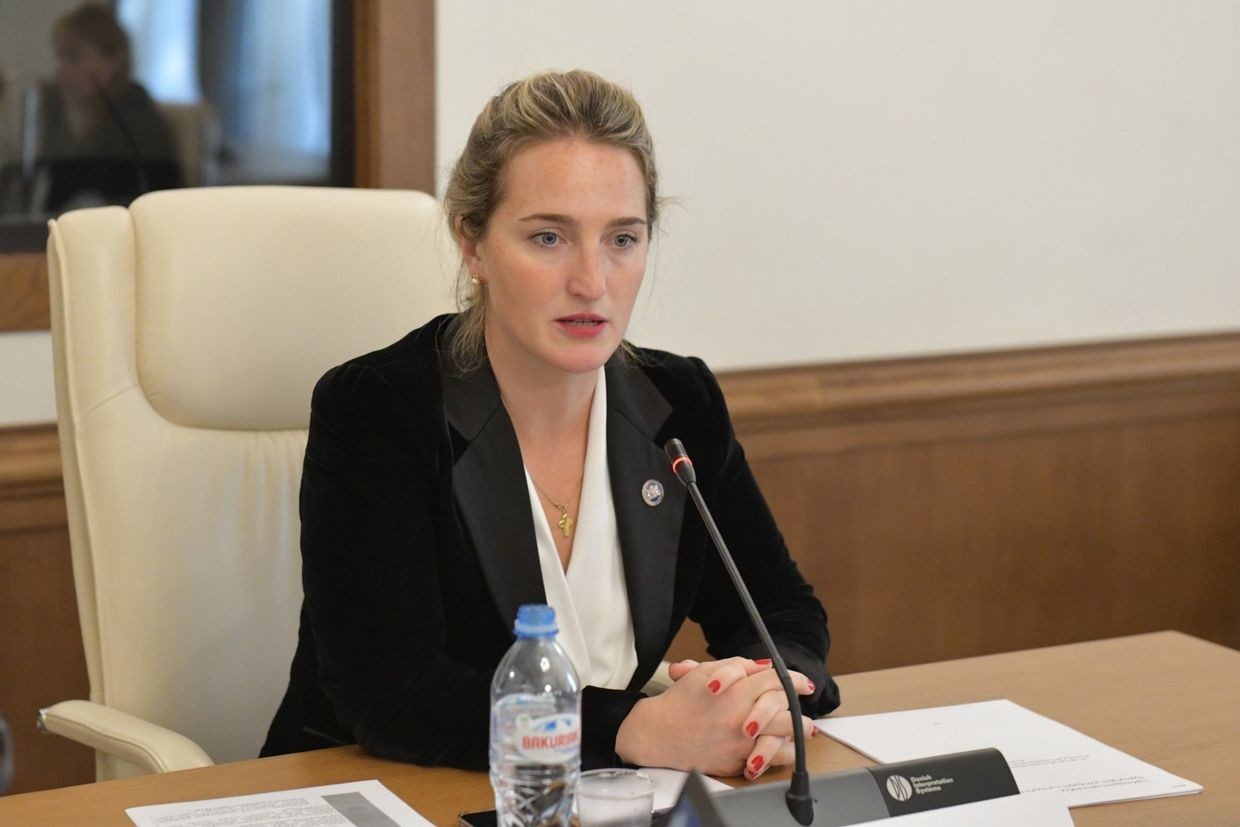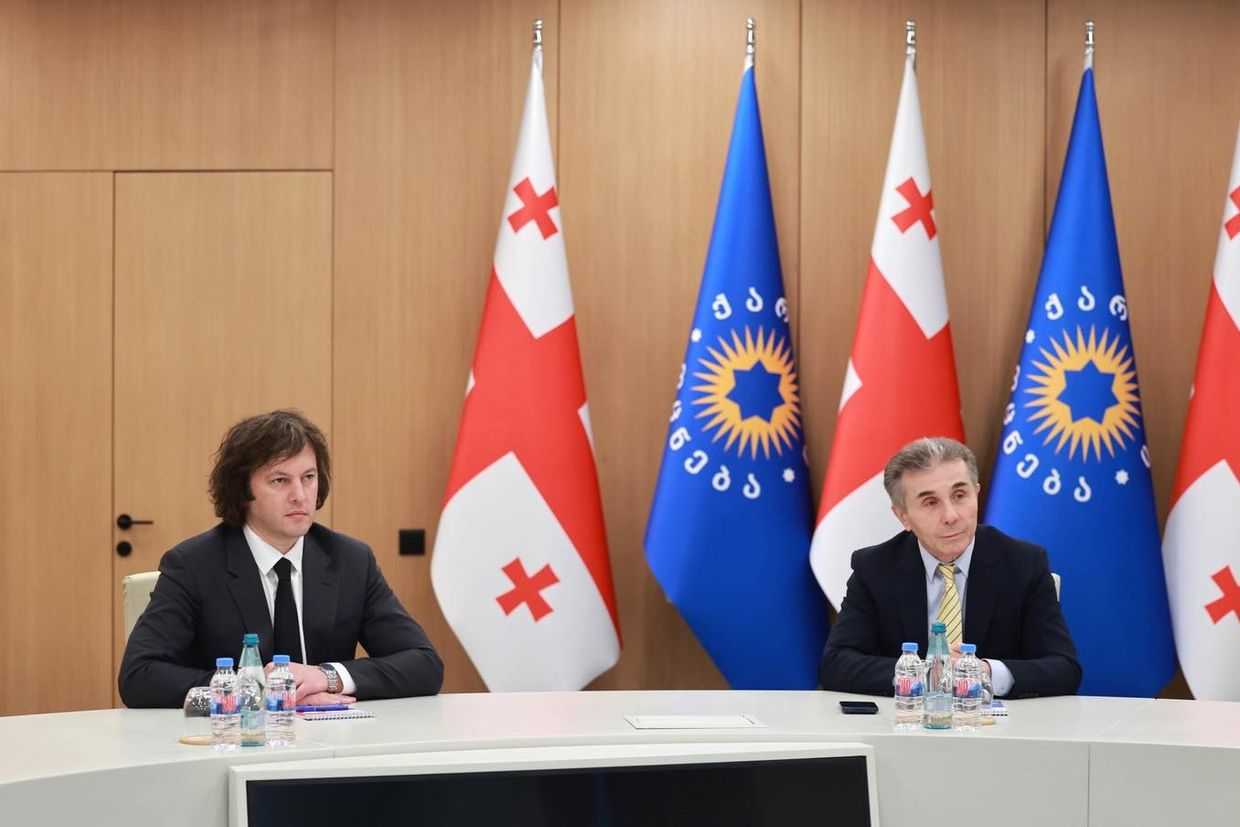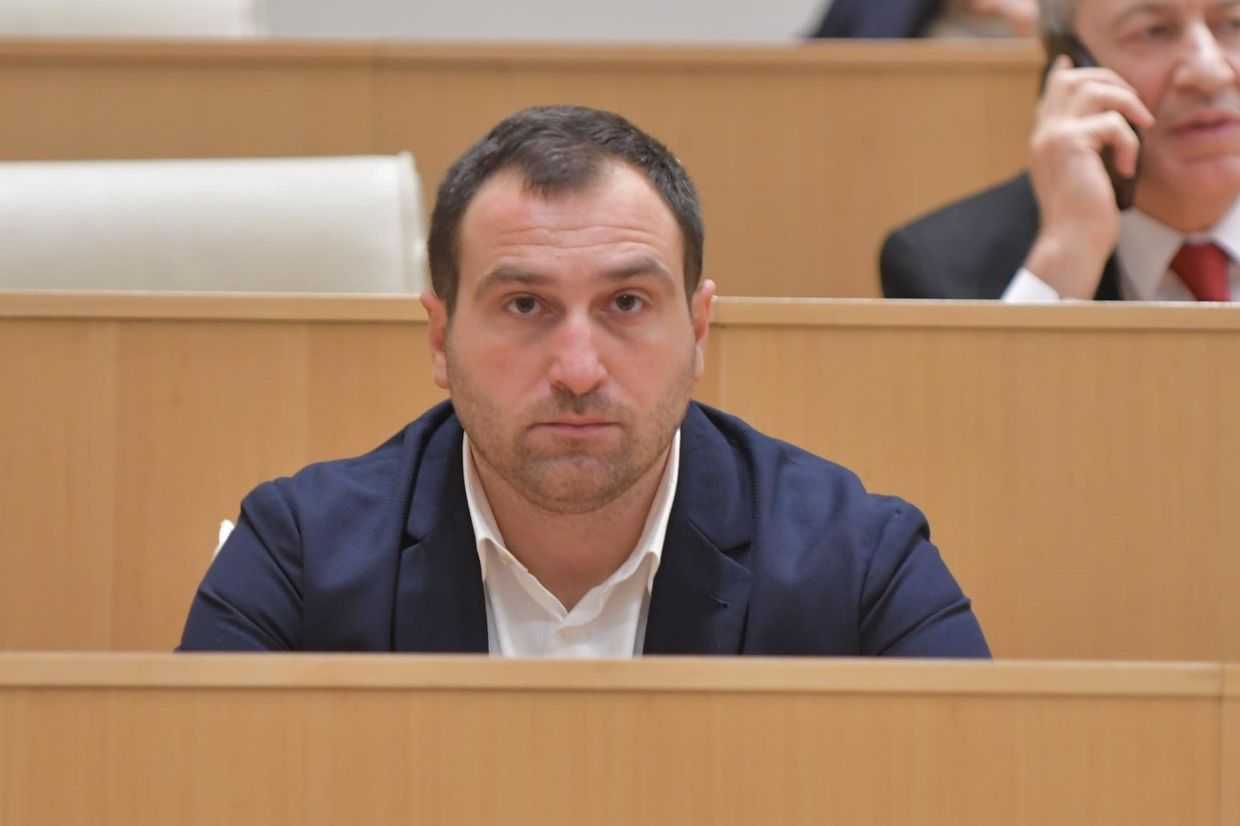
Georgian Dream MP Mariam Lashkhi has told reporters she plans to appeal the decisions by Estonia and Lithuania to sanction her, claiming she could take the case to the European Court of Human Rights (ECHR) in Strasbourg.
‘If you look at my personal affairs, I have done nothing other than promoting and developing friendship with Estonia and Lithuania. When I asked the reason [for the sanctions], I did not understand the reason’, Lashkhi told reporters on Tuesday.
‘I just can’t afford it now, but I want to appeal this decision. I’ll talk to a lawyer. Perhaps the decision should first be appealed in the country of residence, and the next instance is probably Strasbourg’, she said, adding that if she had been subject to financial losses, ‘it would be an even more aggravating circumstance and I could have more arguments’.
Lashkhi has often found herself in the centre of controversy. In an English-language interview in May 2024 with the UK podcast The News Agents, she referenced one of the most popular Georgian Dream conspiracy theories, that the so-called ‘deep state’ and ‘global war party’ are seeking to undermine Georgia and pull the country into war with Russia. When pressed by the interviewer who specifically she was referring to, Lashkhi compared the groups to the ‘Freemasons’, but conceded that she did not know who else was part of the ‘global war party’. The exchange was widely mocked at the time.
In May 2025, Lashkhi was confronted and heckled by two activists while at a cafe. The two activists were later sentenced to 12 days of administrative detention.

Georgian Dream downplays steps to revoke visa-liberalisation
The Baltic states have been at the forefront regarding sanctions against Georgian officials over ‘the persecution of peaceful protesters, journalists, and opposition representatives’ following the October 2024 parliamentary elections and subsequent halting of Georgia’s EU accession bid.
As of July, Estonia has imposed travel restrictions on 102 Georgian officials, including Lashkhi who was among the most recent batch to be sanctioned.
‘Estonia will continue to support Georgia’s civil society, independent media, and European integration by standing up for the rights and dignity of the Georgian people’, Foreign Minister Margus Tsahkna said at the time.
Besides individual sanctions, both Estonia and Lithuania have passed resolutions suspending visa-free travel for Georgian diplomats and officials such as Lashkhi. The resolution was made on the basis of a European Council decision to partially suspend the application of the EU–Georgia visa facilitation agreement in May.
‘The EU and its member states took the decision as a reaction to the efforts by Georgia’s ruling party to stifle the voices of opposition political parties, civil society organisations, journalists, and the people of Georgia protesting against the actions of the Georgian Dream, which is anti-democratic, restrictive of human freedoms and fundamental rights and seen as incompatible with EU values and standards’, the Lithuanian Foreign Ministry stated in May.
They emphasised that the requirement to obtain valid visas was only introduced for holders of Georgian diplomatic and service passports.
‘Other Georgian nationals who are holders of biometric passports will continue to benefit from the visa exemption when travelling to the Schengen area for short stays’, they stated.
In response, Georgian Dream officials have repeatedly downplayed the effects of such sanctions, making Lashkhi’s threats to sue Estonia and Lithuania over said restrictions all the more notable.
In July, Prime Minister Irakli Kobakhidze accused the EU of ‘blackmail’ over their moves to possibly restrict Georgia’s visa-liberalisation.
‘If the choice comes down to peace and stability or visa liberalisation, we will, of course, prioritise peace and stability’, Kobakhidze stated.
‘When they tell you not to pass a law that limits a foreign power’s ability to stage a revolution in your country, it means they are threatening you with the loss of stability and peace’, he added.
He further claimed that ‘whether you travel to Europe with a visa or without one is not an existential issue’ — unlike peace and stability.

Prior to that, in April, Parliamentary Speaker Shalva Papuashvili questioned whether visa-free travel was ‘some kind of divine manna’.
‘We also give visa-free access to Germans — so what?! Sorry to everyone, but visa-free travel means a Georgian tourist goes to Germany or France, spends money there, and contributes to their economy’, he said, claiming that it would be the EU economy that would suffer ‘if they close the visas and don’t let the tourists in’.
Papuașhvili’s comment was soon followed by a response from Sozar Subari, an MP from the Georgian Dream satellite party People’s Power. Subari framed the visa-free travel issue within the context of the ruling party’s frequently promoted conspiracy narrative about the ‘deep state’ or ‘global war party’.
‘I truly don’t have such a low opinion of the Georgian people as to think that visa liberalisation is more important to them than rejecting the anti-national and anti-Christian policies that the “deep state” is trying to impose on us ’, he wrote on social media.
Joining her colleagues, Georgian Dream MP Nino Tsilosani added that ‘visa-free travel is certainly comfortable’, but ‘if comfort conflicts with patriotism, the Georgian people have always and will always remain patriots of their country’.
She also noted that ‘this comfort was earned during the rule of Georgian Dream’ and that it ‘was not given for nothing’.
In October, the EU backed a set of rule changes that would make it easier to suspend visa-free travel from countries that currently have visa-waivers if they are found to pose security threats or are violating human rights. The changes are reportedly inspired by and focused on Georgia, as relations between Brussels and Tbilisi continue to plummet.











